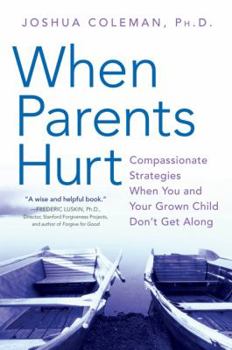When Parents Hurt: Compassionate Strategies When You and Your Grown Child Don't Get Along
Select Format
Select Condition 
Book Overview
This unique book provides compassionate strategies to help parents work through the pain, shame, and sense of loss that they feel when dealing with family conflict or when their relationship with their older or adult children has not turned out as they hoped or expected.
Sometimes, despite our best efforts, we lose the opportunity to be the parent we desperately want to be and must mourn the loss of a harmonious relationship with an estranged adult child. Although this situation may seem hopeless, When Parents Hurt is a parenting guide designed to help us through this intensely difficult situation with compassion and thoughtfulness.
Through healing exercises and case examples, Dr. Joshua Coleman helps parents:
Reduce anger, guilt, and shameLearn how temperament, the teen years, a partner's or their own mistakes, and divorce can harm the parent-child bondCome to terms with their imperfections, as well as their child'sDevelop strategies for reaching out and for maintaining their self-esteem through trying timesUnderstand how society's expectations contribute to the risk of parental woundsBy helping parents recognize what they can do--and to let go of what they cannot control--When Parents Hurt offers a clear path toward healing for parents and helps families develop more positive ways of relating to themselves and each other.






